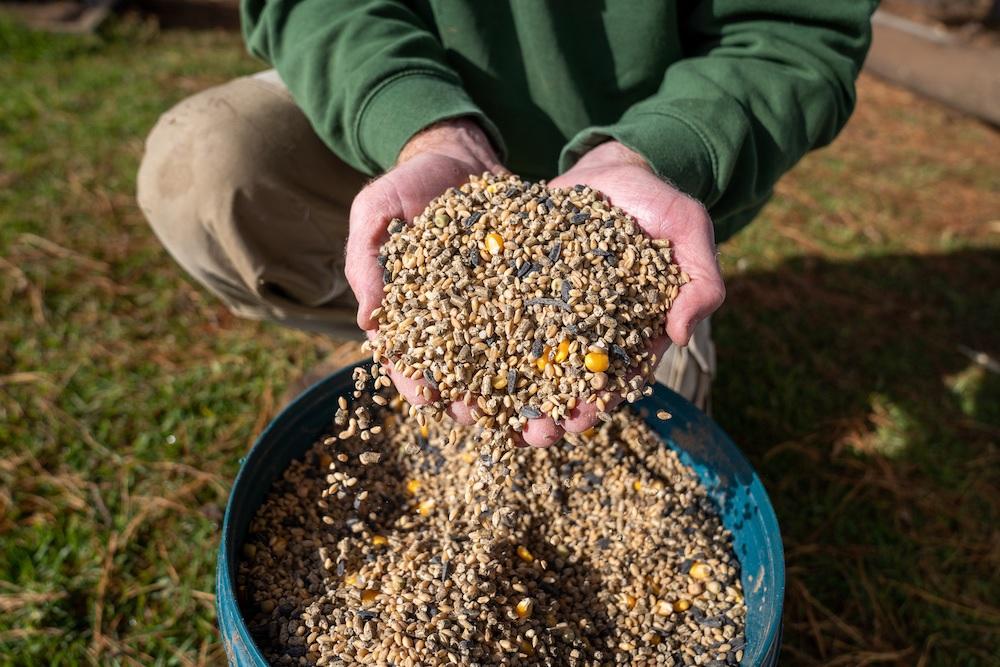Introduction
Increasing awareness about environmental sustainability and health concerns related to chemicals used in convention farming have led to rising popularity of organic food production globally. One of the key aspects of organic food production is use of organic feed for livestock animals like cattle, poultry and others. This article discusses the benefits of organic feed and why it represents the future of sustainable livestock farming.
What is Organic Feed?
Organic Feed is feed or fodder that has been produced without the use of synthetic pesticides, fertilizers, GMOs, sewage sludge or ionizing radiation. For feed to be certified as organic, the crops used in the feed must be grown on land that has been free from prohibited substances for at least three years. The organic feed contains no artificial preservatives, colors, flavors or synthetic hormones. It consists of ingredients that are certified organic like organic grains, legumes, forages and natural additives.
Benefits of Organic Feed
Healthier Animals: Organic feed promotes better animal health as it does not contain any antibiotics, hormones, pesticides or other chemicals. Studies have shown animals fed organic feed have stronger immune systems and are less prone to diseases.
Nutritious Food: Organically raised livestock produce nutritious food products like meat, milk and eggs that are free of residues of antibiotics and hormones. Moreover, organic feed contains higher levels of beneficial nutrients.
Better Environment: Organic feed production is better for the environment as it relies on sustainable farming practices like crop rotation and organic manure instead of synthetic fertilizers and pesticides. This improves soil quality and protects water resources.
Human Health Benefits: The nutritional advantages of organic feed translate to health benefits for consumers. Studies link organic meat and dairy to lower risks of cancer, cardiovascular diseases and other chronic ailments.
Economic Advantage: While initial investment in organic operations is high, lower input costs, premium prices and increasing market demand for organic products make organic livestock farming economically viable over the long term.
Rise in Organic Feed Production
Global consumer demand and advantages of organic animal husbandry have led to significant growth in organic feed production. According to statistics, certified organic cropland grew by 17% between 2015 to 2020. Organic grain production increased by over 30% during the same period to meet rising feed demands. Major organic feed ingredients now include soybean, corn, small grains and forages. Leading producers include the United States, Canada, Germany, France and Argentina. Several new entrants are also joining the organic feed sector to tap market opportunities.
Key Organic Feed Producers
A few major companies producing and supplying certified organic feed globally include:
- Agro Logistic: A leading European supplier of organic compound feed and feed ingredients. Offer various organic rations for cattle, pigs and poultry.
- Country Heritage Feeds: Produces certified organic feed for beef cattle, dairy cattle and small ruminants in North America using non-GMO ingredients.
- Modesto Milling: One of California's pioneering organic feed mills manufacturing organic dairy, beef and poultry feeds from organic grains and forages.
- Ranch-Way Feeds: Canada's largest organic feed manufacturer with expertise in organic beef, dairy, swine and poultry rations.
- Strauss Feeds: An Israel-based manufacturer focused on organic and sustainable feeds made from locally grown ingredients for poultry, cattle and aquaculture.
- Frey Vital: Provider of organic compound feeds, premixes and feed additives for ruminants, poultry and pigs across Europe.
Challenges and the Road Ahead
While organic feed production is growing rapidly, it still only represents a small fraction of total commercial feed production globally. High costs of organic certification and establishing organic crop rotations present initial challenges. Unavailability of organic feed ingredients locally and ensuring consistent quality and supply are also issues faced by farmers and feed producers. However, with policy support and continuous R&D in organic agriculture, these bottlenecks can be addressed. If current growth trends continue, organic feed may account for 25-30% of commercial feed markets worldwide by 2030, making it the future of sustainable livestock farming.
In summary, the nutritional, environmental and health advantages of organic feed are clear drivers of its rising popularity despite some implementation challenges. As consumers increasingly demand organic and sustainably produced food, organic feed will play a vital role in building a vibrant organic livestock sector globally. With collaborative efforts across the supply chain, organic feed undoubtedly represents the future of the feed industry and livestock production.
Get more insights on this topic: https://benstiller.hashnode.dev/organic-feed-a-sustainable-approach-to-animal-agriculture

